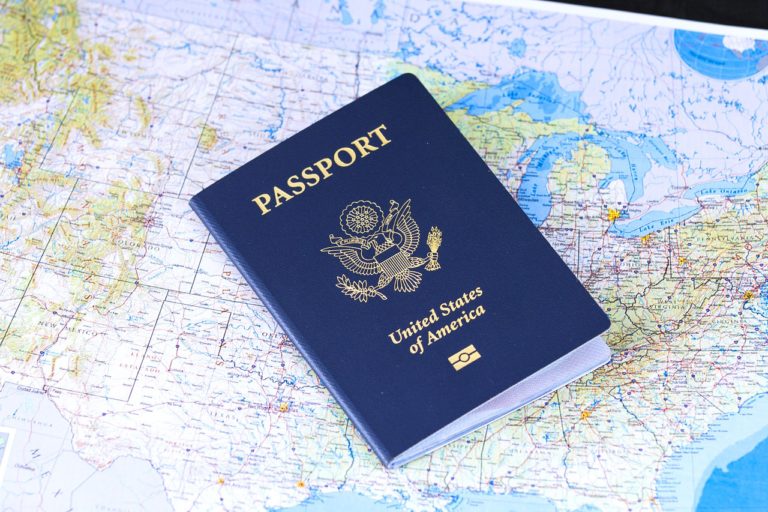 The preparation for the residency interviews is broad, and it encompasses several aspects needed to be shown to the programs. These qualities can help showing to a program how well prepared a candidate is for a residency position. The preparation for the residency interview questions and answers plays a crucial role in the image that an interviewee would like to show during their meetings with the program members.
The preparation for the residency interviews is broad, and it encompasses several aspects needed to be shown to the programs. These qualities can help showing to a program how well prepared a candidate is for a residency position. The preparation for the residency interview questions and answers plays a crucial role in the image that an interviewee would like to show during their meetings with the program members.
The questions asked by the interviewers are the major tool used by them to analyze and understand an applicant. What you say and do during our interviews is very important because it may get you close to the goal of securing a residency position or it may decrease your chances to succeed. There are many sources of information about the residency interview process who comment about how to behave during a residency interview. However, being natural during the interviews has the benefit of making you feel more comfortable during the whole process and helping the program to understand if you are compatible with what they are looking for. It is a good idea to show yourself and be selected for who you are, instead of being chosen for who you are not and have a bad time during your residency training.
Preparing the most important residency interview questions and answers will boost your confidence and will allow you to send the right message about yourself to the interviewers. There are several ways to practice for the interview season. Elaborating your own personalized list of questions and answers can help you to get a better idea of what you would like to say, although memorizing your answers may not be the best idea since it can give a “robotic” impression about yourself to the people meeting you. Practicing your answers by saying them at loud to yourself, speaking to a friend or colleague, or doing mock interviews can aid in the adaptation process for interviewing in a relaxed and professional way.
For International Medical Graduates (IMG’s) for whom English is not their native language, practicing pronunciation and grammar is a good idea as well. Depending on the number of interviews you are granted, you can select the programs that you are less interested in first so that you can practice how an interview day is held and lose the fear of the first interview. If the first interview does not go as well as you expected, continue to prepare yourself and work in the aspects you did not feel well during the previous experiences.
The academic tools you can use for preparing your questions and answers for the interviews are:
- Your own list of questions and answers: It is preferable to write them down so you can review them before every interview.
- Flashcards.
- Audio recordings of your responses.
- Residency preparation courses.
1. List of residency interview questions and answers.
It is better to write a list of questions and answers that you may encounter during your interviews. The order of questions should be made by the most common questions asked first, and then the other possible questions so that you do not get surprised by a question during your interview that can make you feel anxious and ruin your performance. Prepare every question with a brief, concise, and complete answer. The duration of the answer in spoken time should not be longer than 90 seconds to avoid fatiguing the interviewer.
MOST COMMON QUESTIONS ASKED DURING A RESIDENCY INTERVIEW:
- Tell me about yourself.
- What are your strengths and weaknesses?
- What are your hobbies or interests? What do you do to relieve your stress?
- Why did you choose this program? Why this city? Why did you choose the United States? (For IMG’s)
- Why did you choose this specialty?
- How do you know the program?
- What are your future goals? Where do you see yourself in 5 or 10 years?
- Why should we choose you over the other qualified applicants?
- Could you tell me about an interesting case you have seen recently?
- Do you have any question for me? *
* This is the most important question you should try to prepare. It is not easy to remember what questions you have and the pressure at that moment can be great. Think about this well before the interview.
Next, there will be a description of all the important questions that can be asked during a residency interview. Try to prepare for them as well.
PERSONAL TYPE OF QUESTIONS ASKED DURING A RESIDENCY INTERVIEW:
- Tell me about yourself. It is the most important and common question, should be 1-2 minutes in length and medically related.
- How would your friends describe you? How would you define yourself? Who are you as a person?
- What do you do in your spare time? What are your hobbies and interests? How do you relieve your stress?
- Do you see any problem managing a professional and a personal life
- What are your goals? What do you see yourself doing in the future? Where do you see yourself in 5 or 10 years from now? What are your long-term goals? What are your planning to do after finishing your residency training? Are you interested in pursuing a fellowship?
- What is your most important accomplishment? What other accomplishment have you achieved? (the recommendation is to prepare a professional or extra-curricular accomplishment and use it depending on how much have you been able to express so far during the interview)
- What motivates you?
- Why did you become a doctor? Why did you choose medicine as your career?
- If you could not be a physician, what career would you choose?
- Why should we choose you? What are your strengths? What sets you apart from the crowd? How would your friends describe you? How would you describe yourself? What are your key skills? What can you bring to our residency program? What qualifications do you have that set you apart from other candidates? Why should we choose you over the other highly qualified applicants? (Personalize it always depending on the main interest of the program that you are applying to)
- What are your weaknesses? What is your worst quality? If you could change one thing about your personality, what would it be? What would your friends say is your biggest weakness? What would your last resident or attending physician want you to change with respect to your work habits? (Mention at least 3)
- How well do you take criticism?
- What leadership roles have you held? Tell me about a time when you had to be a team player to accomplish a goal. Tell me when you were a leader.
- Tell us about your research experience. Do you want to do research?
- What is the greatest sacrifice you have already made to get to where you are?
- If you could do medical school again, what would you change? How have you done in medical school? What were the major deficiencies during your medical school training?
- Describe the best/worst attending with whom you have ever worked. What rotation gave you the most difficulty and why? Discuss a particularly meaningful experience in your medical training
- What was the course during medical school that you liked the most?
- What is the worse experience that you had in medical school? Tell me about a difficult time during medical school. What was your most difficult situation in medical school? Tell me about a particularly stressful situation you encountered in medical school and how did you handle it?
- Where else have you interviewed? Where else are you interviewing? Where have you applied other than here?
- Have you always done the best work that you are capable of?
- Whom do you depend on for support?
- With what kinds of people do you have difficulty working?
- With what type of patients do you have troubles dealing?
- What was your most memorable patient encounter?
- What if you don’t match? What will you do if you don’t match?
- What was the last book you read? Tell me something about the last book you read.
- Tell me a joke.
- There is a GAP of 2 years in your CV. What did you do during this time?
There are questions that can be answered in the same way, it would be better to prepare a single answer for all of them. In that way, it will be much easier for you to remember them.
QUESTIONS ABOUT THE SPECIALTY OF CHOICE:
- How would you contribute to our residency program?
- How would you contribute to our residency program?
- Why are you going into this specialty? Why did you choose Internal Medicine? What do you see as the positive features of this specialty?
- What have you done to inform yourself about a career in this specialty?
- What do you see as the negative features of this specialty? What problems do you think the specialty faces?
- What do you consider to be important in a training program? What are you looking for in a program? What is your ideal program?
- What are you avoiding in a training program?
- Why have you applied to this residency program? Why did you choose this program? This is the most specific question about a program. We will need to answer with facts about that particular program.
- Are you applying to any other specialty?
- What will be the toughest aspect of this specialty for you?
- What problems will our specialty face in the next 5-10 years?
- What clinical experiences have you had in this specialty?
CURRENT EVENTS QUESTIONS ASKED DURING A RESIDENCY INTERVIEW:
- What do you think about what is happening now? This question is related to the current events in the United States Healthcare System.
- How do you see the delivery of health care evolving? This means how will the health care coverage in the United States evolve comparing to the present time.
- How is the healthcare system from your country different from the one applied in the United States? (IMG’S)
QUESTIONS ASKED TO INTERNATIONA MEDICAL GRADUATES DURING A RESIDENCY INTERVIEW:
- Why did you leave your country?
- Why did you leave your country?
- How is the healthcare system in the United States different from the one of your country?
- What have you done to familiarize yourself with medicine as it is practiced in the United States? How well do you see yourself adapting to the US healthcare system?
- Do you have an ECFMG certificate? What ECFMG requirements remain for you to complete?
- How would you rate your oral and written communication skills?
BEHAVIORAL TYPE OF QUESTIONS ASKED DURING A RESIDENCY INTERVIEW:
- Tell me three things that would make you valuable for our residency program.
- Tell me three things that would make you valuable for our residency program.
- Tell me about a time when you worked effectively under a lot of pressure?
- Tell me about the most interesting case that you have been involved with? Tell me about a recent case that you have seen. (Prepare at least two cases, they do not need to be rare or very interesting. Instead, use this opportunity to show how you have been involved in the treatment of patients).
- Tell me about a time when you made a mistake and had to admit it to your resident or attending.
- How would you deal with a fellow resident who is not doing his share of the work?
- Tell me about the time when you were really upset by the words or actions of an attending or resident?
- Tell me about the time you had to build a relationship with someone you did not like. Tell me about the time when you became really angry over a situation at work.
- Tell me about the time when you had a personality conflict with another team member? how did you deal with it?
- Your attending physician asks you a question and you are not sure of the answer? what would you say or do?
- You colleague is abusing alcohol or drugs. How would you handle this situation?
- Tell me about a time when you were disappointed in your performance? Tell me about a situation in which you overcame adversity?
- Tell me about a time when you disagreed with how an ethical situation was handled? Tell me about the problem you had with a classmate, faculty member, or patient. How did you handle it?
- Describe a clinical situation you handled well.
- Tell me about a clinical situation that did not go as well as you would have liked?
- Tell me about the time when you handled a stressful situation poorly.
- Was there a time during rotations in which you didn’t feel like part of the team. How did you handle the situation?
- Tell me about the time during rotations in which you went above and beyond?
- Describe to me a time when you received an evaluation with which you disagreed.
- Your senior resident insists on a treatment plan you feel may harm the patient. What do you do?
The idea behind the behavioral type of questions is to know about the interviewee decisions by knowing how that person handled a difficult situation in the past. Giving an example is a must for this type of question.
2. Flashcards:
Preparing flashcards with the questions and the answer in the back is a very good way to practice. Do a random selection of the flashcards and that will help you to be prepared to answer any question properly. My personal favorite flashcard tool is Quizlet.
3. Audio recordings:
If you have the available time to do it, try recording your responses in audio sets. Then listen to them when you are preparing for your interviews, that will help you analyze your speech, pronunciation, pacing, the tone of voice, and so on. It is a very important part of the interview. It is also very important to prepare your body language for the interview. The body language is the most important communication skill needed to be polished for your interviews.
4. Residency interview preparation courses:
There are several courses available in different cities and online to improve your interviewing skills. The choice depends on the need for improvement you think is required for you. Most of the people do not use them, but they can improve your skills mostly if you have never had a work interview before.
The residency interview questions and answers can be tedious, however, preparing for them is essential to have the best interview experience. Please, leave your comments below and we will respond as soon as possible. Good luck with your interview season.
Continue to:
- Aortic Stenosis Severity Classification - 09/22/2020
- Carboplatin (Paraplatin) - 04/07/2019
- How to test for Vitamin D deficiency? - 09/29/2018





